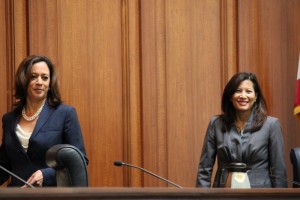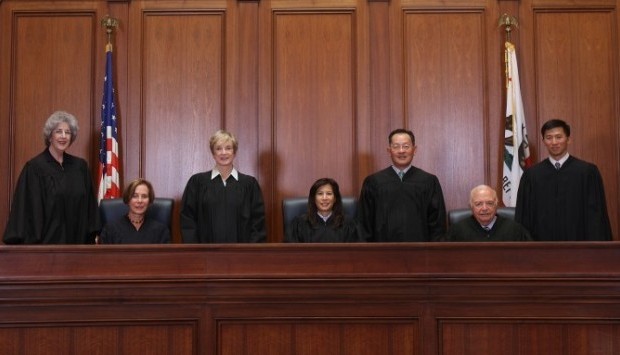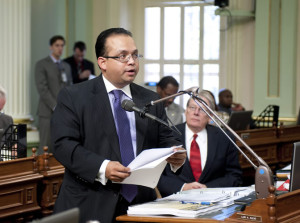An undocumented immigrant in California who passed the bar is barred from obtaining a law license
A case before the Supreme Court of California will decide whether an undocumented immigrant can be granted a law license.
Editor’s Note: The Campbell Law Observer recently held its write-on competition for the Fall 2013 semester. Students were given the option of choosing a topic of their own, like this author, or a suggested topic. This article was awarded the second highest overall score by our editorial staff.
For many law students, passing the bar exam seems like the greatest obstacle between them and a legal career. For one Chico, California man, the bar exam was only the beginning of a long road to obtaining a law license.
Sergio C. Garcia (subscription required), thirty-six years old, was born in Mexico, but was first brought to the United States by his parents at seventeen months old. Though he returned to his birthplace at age eight, at age seventeen, Mr. Garcia ventured back to the United States to stay. After completing his high school and college education in California, he enrolled at Cal Northern School of Law.
In May 2009, Mr. Garcia graduated from Cal Northern and sat for the California bar exam that same year. Unlike roughly half of first-time test takers in the state, Mr. Garcia passed. More than four years later, the Supreme Court of California will now decide whether Mr. Garcia can be issued a law license.
PRWORA prohibits state and local governments from using their funds to provide undocumented immigrants with certain types of public benefits.
The resistance against Mr. Garcia becoming licensed comes from the U.S. Department of Justice (“DOJ”). The DOJ argues the federal Personal Responsibility and Work Opportunity Reconciliation Act (“PRWORA”) bars undocumented immigrants from obtaining professional licenses of any kind.
Passed in 1996, PRWORA prohibits state and local governments from using their funds to provide undocumented immigrants with certain types of public benefits. Included on the list of the Act’s prohibited benefits are professional licenses, both state and federal.
Mr. Garcia argues that this restriction does not apply to his case because the law only means that professional licenses for undocumented immigrants cannot be subsidized with public money. Because the State Bar Association is responsible for vetting applicants for law licenses and it is funded by membership fees, the public money requirement is not at issue.
The DOJ disagrees, arguing that the Supreme Court of California is the body that is actually responsible for issuing law licenses. The court is funded with public money; therefore, the PRWORA restrictions apply.

CA Attorney General Kamala Harris and Chief Justice Tani G. Cantil-Sakauye (Photo by: California Courts)
Beyond the prohibitions contained within the PRWORA, other problems may arise when an undocumented immigrant practices law. A former prosecutor for the California State Bar has expressed his concerns about admitting Mr. Garcia in an amicus curiae brief (pdf) in opposition to Mr. Garcia’s admission. Larry DeSha doubts that Mr. Garcia could take the oath required of all attorneys in the state, in which they promise to uphold the laws of California and the United States, when Mr. Garcia himself is in violation of immigration laws. If Mr. Garcia is admitted, Mr. DeSha also worries about Mr. Garcia’s potential clients—what would happen to them if their attorney was arrested and deported?
If the decision were up to the state of California, Mr. Garcia would already have his law license.
If the decision were up to the state of California, Mr. Garcia would already have his law license. State officials feel that the DOJ is overstepping its bounds by telling the state who it can and cannot admit to the bar. Mr. Garcia and his supporters concede that he could not be employed by a law firm under current federal employment laws. They argue, however, that this alone should not bar Mr. Garcia’s admission because he could still work as a solo practitioner or as a volunteer.
In an amicus curiae brief (pdf) supporting Mr. Garcia’s position, California Attorney General Kamala Harris wrote that a state’s ability to choose whom to admit to the bar “has long been held to be a core attribute of state sovereignty.” As noted in the Committee of Bar Examiners of the State Bar of California’s answer (pdf) to the DOJ’s brief, a total of forty-eight organizations and fifty-three individuals signed on to amicus briefs in support of Mr. Garcia’s position.
The problems are compounded as more undocumented immigrants seek to enter the workforce.
Mr. Garcia’s problem is not entirely uncommon. In Florida, for example, another undocumented immigrant is fighting for his law license. Jose Manuel Godinez-Samperio obtained authorization to work in the United States through a Department of Homeland Security program. He has been barred from getting his law license because, the DOJ argues, this authorization alone is insufficient to qualify Mr. Godinez-Samperio for a professional license.
In New York, undocumented immigrant Caesar Vargas is waiting to hear whether he will be admitted to the New York bar. Mr. Vargas is a member of the DREAM Bar Association, a group made up of “undocumented pre-law students, law students, practitioners, and paralegals.” The group’s purpose is to “to provide a forum where its members can answer questions related to the legal field and work cooperatively on other issues affecting undocumented immigrant people.” The DREAM Bar Association submitted amicus briefs in both Mr. Garcia (pdf) and Mr. Godinez-Samperio’s (pdf) cases.
The issues faced by undocumented prospective lawyers are not unique to the legal profession. For example, twenty-nine career fields in Mr. Godinez-Samperio’s home state require a license from the Florida Department of Business and Professional Regulation. An undocumented immigrant, or even one with limited authorization like Mr. Godinez-Samperio, could not work in any of these areas under the DOJ’s interpretation of the PRWORA.
The problems are compounded as more undocumented immigrants seek to enter the workforce. The Pew Research Center’s Hispanic Trends Project estimates that there were 11.7 million undocumented immigrants living in the United States in 2012. The Center estimates that, if immigration laws stay the same, from 2005 to 2050, the population of the United States will increase by 117 million people, including 67 million immigrants.
A survey of participants in the U.S. Citizenship & Immigration Services’ deferred action program reveals that undocumented immigrants are coming to the United States with high career aspirations. Forty-two percent of survey respondents indicated that they expected to obtain a master’s degree, law degree, or professional certification. Seventeen percent hoped to become medical doctors or Ph.D.s.
Through it all, Mr. Garcia still hopes to become an American citizen.
Mr. Garcia got one step closer to getting his law license on September 4, 2013, when his case was argued before the Supreme Court of California. The line of questioning seemed to indicate that the justices did not believe that federal law completely bars Mr. Garcia’s acquisition of a law license but that it was up to the state legislature to create the exception.
Legislative support for such an exception may well exist. Democratic members of the state legislature adopted a non-binding resolution supporting Mr. Garcia and filed an amicus brief on his behalf. A spokeswoman for Assemblyman Luis Alejo (D-Watsonville), who backed the resolution, told the press that Mr. Alejo would introduce the legislation to create such an exception if necessary.
While he waits for a decision on his fate, Mr. Garcia is supporting himself by working various jobs. He runs a company that provides paralegal and other support services and takes on paralegal work himself when he can. On occasion, he also gives motivational speeches to promote a self-help book he has written.
Through it all, Mr. Garcia still hopes to become an American citizen. His father, now a U.S. citizen, filed a petition to obtain an immigrant visa for his son in 1994. The petition was approved in 1995, but Mr. Garcia estimates that he will not get his permanent resident card until 2019.
Long waits like Mr. Garcia’s are not unusual, since the United States issues a limited number of “green cards” each year. According to a study (pdf) completed by the Migration Policy Institute, under the current system it would take nineteen years just to clear the existing backlog for immigrants applying under a “family-preference” status. The number of green cards issued per country is also limited, so applicants from high-demand countries like Mexico face even longer wait times.
Fortunately for Mr. Garcia, the wait for an outcome in his case will be much shorter. The California Supreme Court is expected to issue an opinion in the case, In re Sergio C. Garcia on Admission (S202512), by the beginning of December 2013.
[Updated November 6, 2013: On October 3, 2013, California Governor Jerry Brown (D) signed into law eight bills that have resulted in substantial changes to the state’s treatment of undocumented immigrants. Among the bills was AB 1024, introduced by Assemblywoman Lorena Gonzalez (D-San Diego), which will allow undocumented immigrants to be admitted to the State Bar of California. The bill was initially passed in September by the State Senate with a 29-5 vote and the State Assembly with a 62-4 vote.
After the bill’s initial passage, Sergio Garcia said that the news was “hard to fathom” and that he was “overwhelmed.” Federal law prohibiting the employment of undocumented immigrants still prevents Mr. Garcia from joining a law firm, but with his new law license in hand he plans to work as an independent contractor in civil litigation cases as he waits for the California Supreme Court to issue its decision in his case. ]
Updated January 2, 2014: In an opinion (pdf) released on January 2, 2014, the Supreme Court of California granted the State Bar’s motion to admit Mr. Garcia. The opinion notes that the decision was made possible by the October legislation, which took effect on January 1.
According to the opinion, the new law removes any federal obstacles to the state’s ability to award licenses to undocumented immigrants. Since Mr. Garcia meets of all of the state’s qualifications for admission to the bar, the opinion concludes that he should get his law license.
Chief Justice Tani Cantil-Sakauye authored the unanimous opinion. Associate Justice Ming W. Chin wrote a brief concurrence in which he advocated for the use of the term “unlawful alien” instead of “undocumented immigrant.”


